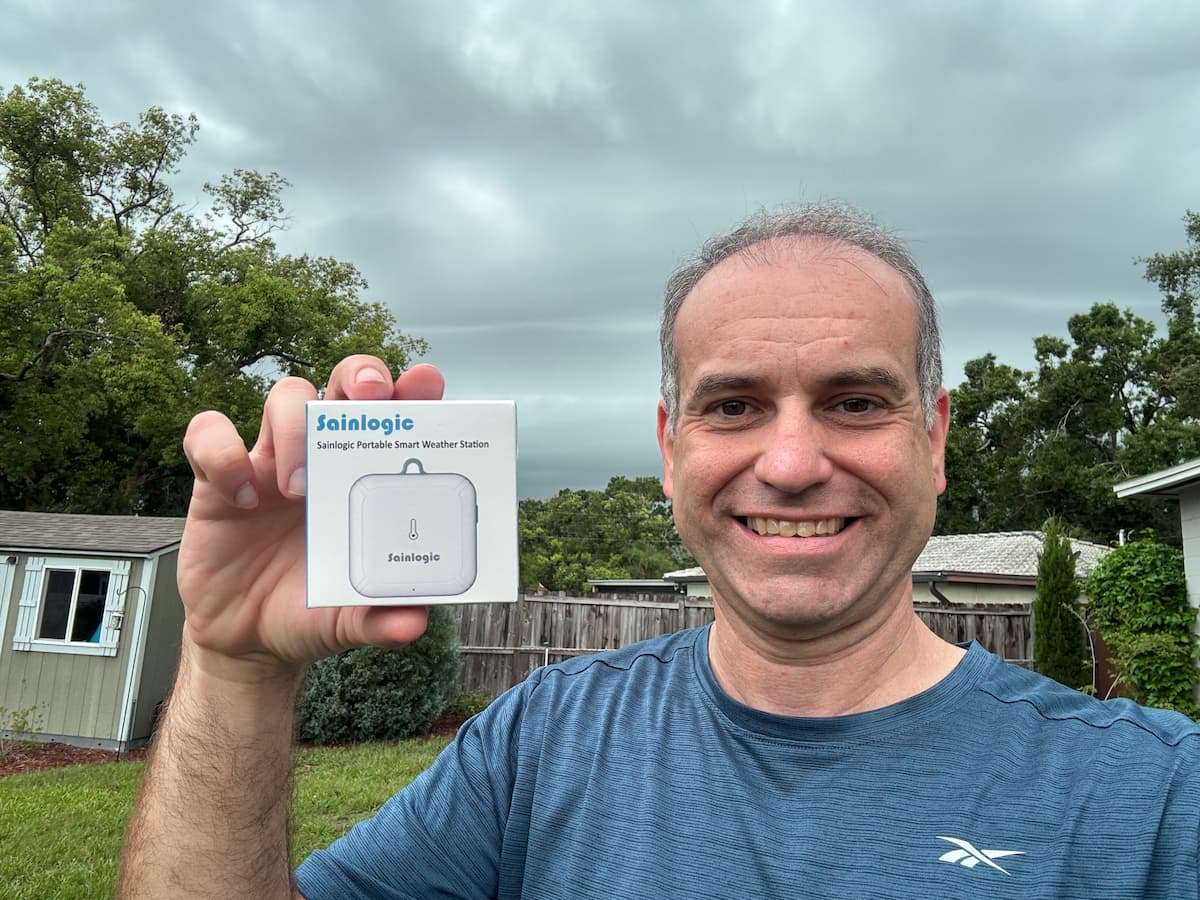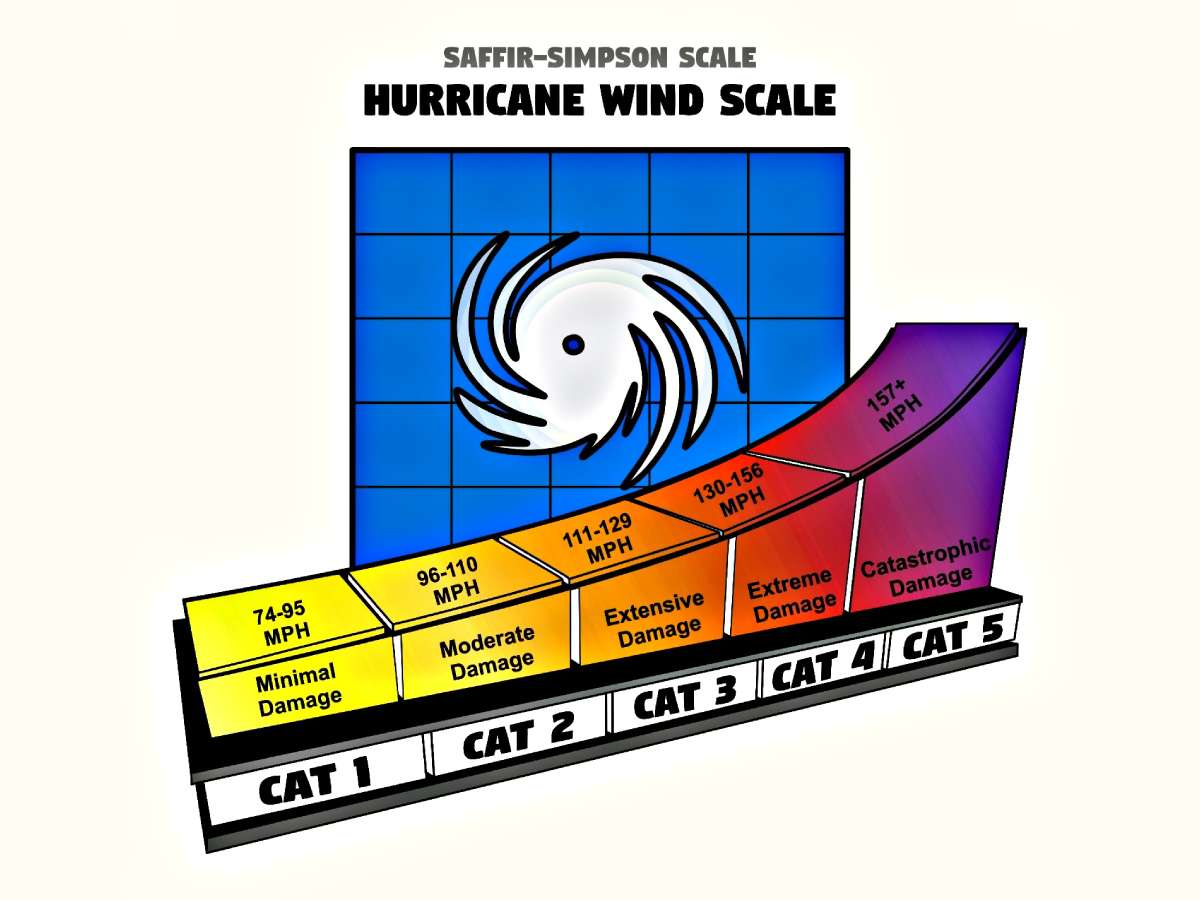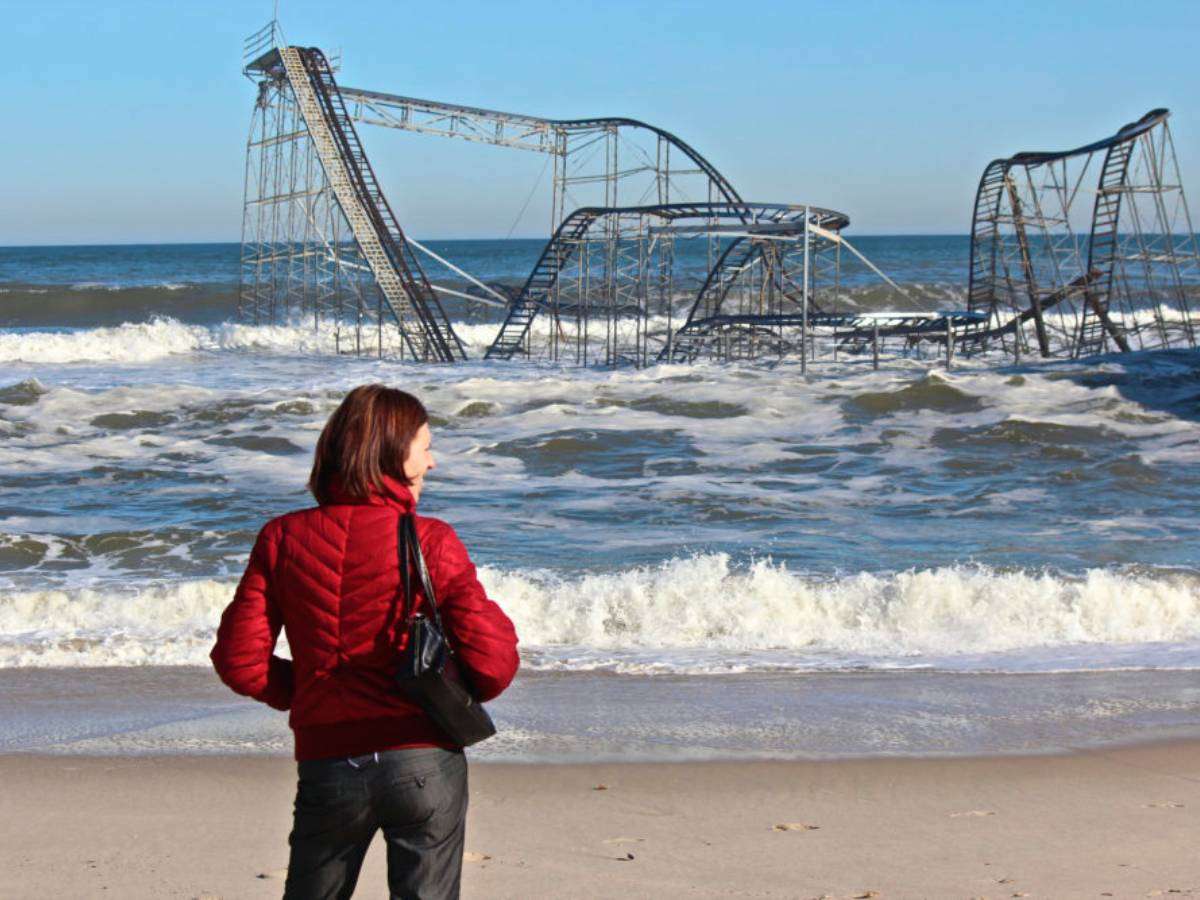Have you ever heard about the heat index?

It’s basically the summer version of the wind chill factor.
When a weatherperson mentions the heat index on the news, they’re talking about how hot it feels outdoors.
Why The Heat Index Matters
The heat index, also known as the feels like temperature, is extremely important for people who spend time outdoors during hot weather.
Whether you’re on vacation, working outdoors, or exercising outside, the heat index tells you how comfortable or, should I say, uncomfortable you’ll feel outside.
The heat index is especially vital during the summer months and when heat waves occur.
How To Interpret Dew Point Numbers
The dew point is a measurement that relates to how humid it is outside.
The higher the dew point is, the more uncomfortable it feels outdoors.
Dew points measure at what temperature dew forms…
The dew point is a great way to determine how muggy it feels outdoors:
- A dew point of 55 degrees or lower feels pleasant.
- Dew points of 56 to 60 degrees feel comfortable.
- If the dew point is 61 to 65 degrees, the air will start feeling sticky.
- When dew points reach 66 to 70 degrees, it feels uncomfortable outdoors.
- A dew point of 71 degrees or higher feels oppressive.
How To Interpret Relative Humidity Numbers
The dew point (when related to the air temperature) provides a data point called relative humidity which expresses how much water vapor the air can hold.
The relative humidity is determined by how close the air temperature is to the dew point temperature. The closer these values are, the higher the humidity. The further apart these values are, the lower the humidity. Source
Because the heat index factors in both the air temperature and relative humidity, 2 days during which the temps reach 90 degrees may not feel the same to you and me.
- A 90-degree day when the relative humidity is, say, 40%, results in a feels-like temperature (or heat index) of 91 degrees — which won’t necessarily feel very oppressive to many people.
- But a 90-degree air temperature combined with 75% relative humidity means the heat index will be 109 — which is dangerously hot for just about everybody.
Here’s an example of how relative humidity relates to rain:
A reading of 100% relative humidity means that the air is totally saturated with water vapor and cannot hold any more — creating the possibility of rain. This doesn’t mean that the relative humidity must be 100% in order for it to rain — it must be 100% where the clouds are forming, but the relative humidity near the ground could be much less. Source
Here’s an example of how relative humidity relates to sweat:
If the air is at 100% relative humidity, sweat will not evaporate into the air. As a result, we feel much hotter than the actual temperature when the relative humidity is high. If the relative humidity is low, we can feel much cooler than the actual temperature because our sweat evaporates easily, cooling us off. Source
The graph below shows you how to calculate the air temperature (top row of numbers) and relative humidity (left column) to determine the heat index:

Here’s another Heat Index Calculator.
How The Heat Index Works
So, you’ve seen why the heat index is important. And you know how to calculate the heat index on your own. Here’s a quick summary of how the heat index works.
Moist air makes it feel hotter outside than the air temperature may suggest, because the higher the relative humidity is, the harder it is for your body to sweat efficiently.
- On a hot, dry day, your sweat will evaporate more quickly and help cool you off.
- On a hot, moist day, your sweat won’t evaporate quickly enough to help your body feel cooler, and it will therefore feel more oppressive outside.
That gives credence to the old saying, “it isn’t the heat, it’s the humidity.”
By the way, the heat index was first conceptualized in 1978 by Robert G. Steadman, and it came into widespread use during the 1980s.
How Hot Is Too Hot?
Some people worship the heat — they move to Florida and feel chilly if it gets cooler than 70 degrees.
Others feel like they’re on the verge of heat stroke after things heat up much above 80 degrees.
A survey was even done on how hot is too hot according to the average person in each state. Here’s an example of what the poll revealed:
- 100 degrees: Arizona and Nevada
- 90 degrees: California, Delaware, Florida, Oregon, Tennessee, Kansas
- 87 degrees: New York, Ohio, Montana
- 85 degrees: Massachusetts, Rhode Island, South Dakota
Of course, those are people’s personal preferences. And while some may love the heat and humidity while others hate it, there is a certain threshold at which the human body simply can’t take the warmth.
Hyperthermia is a serious problem, especially for older people who may not have access to air conditioning.
This is an especially serious problem in places like the Midwest and New England, where summer heat waves can send heat indices to 110 or more, yet many residences in those regions lack air conditioning.
The National Weather Service will issue an excessive heat warning within 12 hours of the heat index reaching 1 of the following 2 criteria:
- The heat index 105 degrees for more than 3 hours per day for 2 consecutive days
- The heat index reaches 115 degrees for any period of time
How To Avoid Hyperthermia & Heat Stroke
On days when it will be too hot for your comfort, try to limit your time outdoors, drink plenty of fluids, and keep your air conditioner on.
Here are other tips to help you beat the heat:
- Avoid alcohol and caffeine, which can dehydrate your body and alter its normal functions.
- Shower and bathe with cool water.
- Rest in a cool, shaded location.
If you don’t feel well, go to the doctor or an emergency room.
Signs of heat stroke include:
- High body temperature of 104 degrees Fahrenheit or greater
- Confusion, slurred speech, irritability or seizures
- Nausea and vomiting
- Rapid breathing
- Headaches
- Racing heart rate
- Flushed skin
- Cool, clammy and/or pale skin





